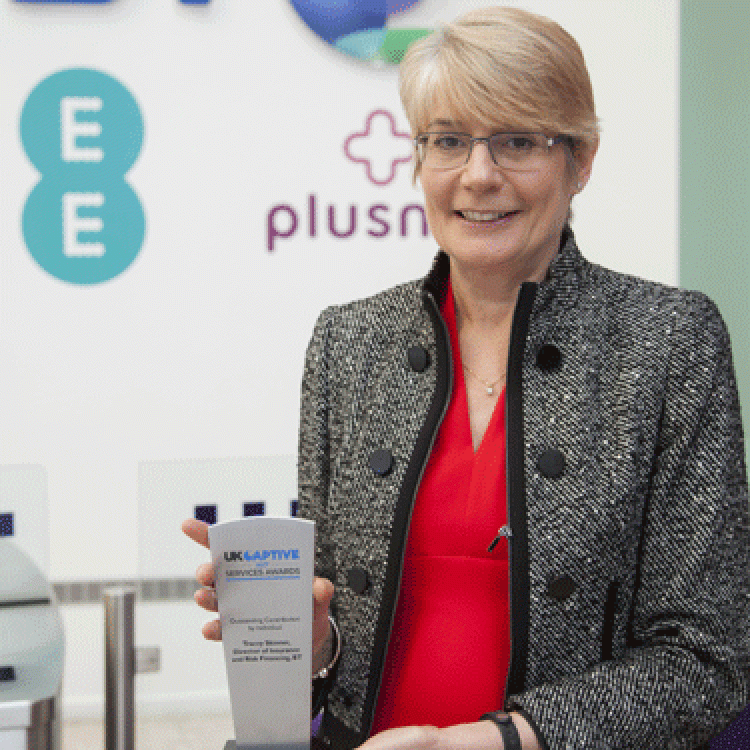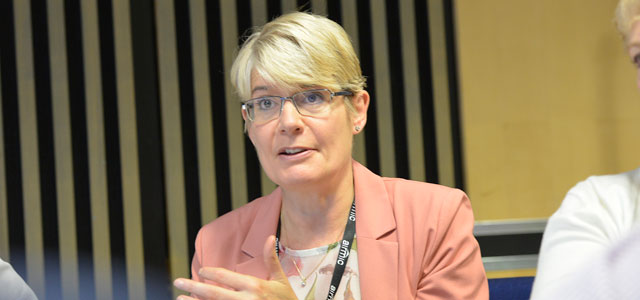Profile: Airmic deputy chair, Tracey Skinner

Tracey Skinner is one of Airmic's big hitters. As Director of Insurance and Risk Financing at BT Group she heads up a team of eight with an overall insurance budget of £116 million and significant wider risk management responsibilities. It presents an interesting challenge at a company whose business model and insurance needs continue to change rapidly.
BT is a classic example of a company that knows all about the rise of intangible assets and the impact of changing business models on insurance programmes. Now much more than just a deliverer of telephone services, it is an organisation that can and does provide its own cover for tangible assets such as property and motor vehicles, either through self-insurance or their Captive supported in some cases by the open market.
BT is even more dependant than many other Airmic members on technology for its operations and long-term success. Although normally referred to as a telecommunications company, it might also be described as a tech business. This inevitably brings insurance challenges as the market struggles to find ways of covering intangible risks to the satisfaction of buyers.
Tracey Skinner says the company has looked at buying parametrics insurance, which pays out when certain indices or other metrics reach pre-agreed levels. This might help, for example, protect BT's Openreach service from the threat of flooding. So far it has not taken the plunge, but she is hopeful that the market is developing sufficiently for this to become a viable option before long.
It is also looking to become one of the very few organisations to have purchased reputational insurance that goes well beyond merely providing PR and other support when things go wrong. It would actually cover the cost of lost reputation, a type of product that has by and large defeated the insurance market up to now. She admits that it is very early days, and nothing has yet been purchased. They are still feeling their way as to how it might work in practice, though she stresses the policy would not be intended to compensate for the effects of poor management.
Despite her insurance background - she spent the first half of her career so far working for various brokers - she supports Airmic's greater emphasis on Enterprise Risk Management. "I think it's a good thing," she says. "The role has changed. There are more people with insurance and risk in their titles, and I need to know what my ERM colleagues are doing and thinking."

In fact, her job also involves a significant amount of wider risk management. She sits on the group risk panel, and her department regularly gets involved in loss prevention. "What we're trying to do consistently is ask 'what can we do to stop having claims?'," she says.
Skinner joined Airmic in 2003 when she left broking to take her first risk management position. "I worked alone. I was a start-up global risk manager, which was quite exciting but quite daunting," she says. "I valued the chance to network and hear things other than what my insurers and brokers were telling me."
She still values the networking and collaboration benefits of being an Airmic member, describing it as "a good way to iron out some of our frustrations." She also plays tribute to the literature, training and information coming out of the secretariat, which she regards as slick and highly effective.
And how might Airmic improve? "I just sometimes feel a little overwhelmed, that we have too many things coming through. I wonder if we should reduce the amount of material that comes out," she says. In other words, better targeted communication, something that the secretariat is currently considering.
Skinner is scheduled to become chair of Airmic in June 2020. So, why is she putting herself forward for a role that can be highly time-consuming when she already has a big day job? "I joined the Board as I believe each of us should take a turn at assisting Airmic. To have an opportunity to help shape the future direction of the organisation as chair is very exciting," she says.
